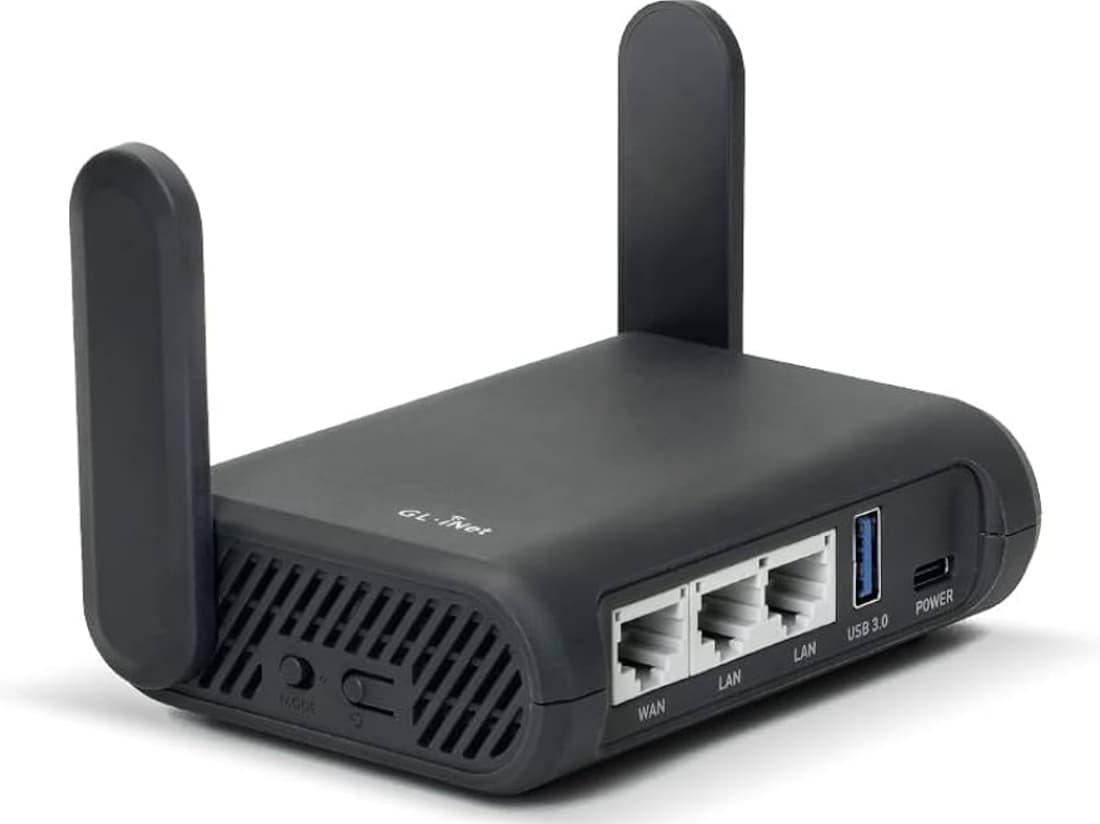In today’s hyper-connected world, the question “can i run gl.inet travel router continuously for 365 days?” has become increasingly relevant for remote workers, digital nomads, and anyone requiring constant internet connectivity.
The short answer is yes, but achieving reliable year-round operation requires careful planning, understanding, and maintenance.
GL.iNet travel routers have earned a reputation for their durability and reliability, making them an excellent choice for continuous operation.
The concept of running any electronic device non-stop for an entire year might seem challenging. Still, with proper knowledge and care, it’s not only possible but can be done efficiently and safely.
This comprehensive guide will walk you through everything from basic setup considerations to advanced maintenance techniques, ensuring your GL.iNet router provides reliable service throughout the year.
Understanding continuous operation isn’t just about keeping the device powered on – it’s about maintaining optimal performance, ensuring security, and preventing potential issues before they arise.
Can I Run GL.inet Travel Router Continuously For 365 Days?

Whether setting up a home office, managing a small business network, or creating a reliable travel setup, this guide will help you achieve your connectivity goals.
The Magic of GL.iNet Travel Routers
GL.iNet travel routers represent a significant advancement in portable networking technology, packing enterprise-level features into pocket-sized devices.
These remarkable pieces of technology have fundamentally changed how we think about personal and professional connectivity, offering unprecedented flexibility and security in a compact form factor.
Core Capabilities and Features:
- Network Creation and Management:
- Instant private Wi-Fi network generation
- Multiple SSID support
- Guest network capabilities
- Band steering and selection
- Quality of Service (QoS) controls
- Security Features:
- Built-in VPN client and server support
- WPA3 encryption
- Firewall protection
- DNS encryption
- Ad blocking capabilities
- Connectivity Options:
- Ethernet WAN/LAN ports
- USB modem support
- Tethering capabilities
- Wireless repeater mode
- Mesh network support
Real-World Applications:
The versatility of GL.iNet routers makes them suitable for numerous scenarios:
| Usage Scenario | Benefits | Key Features Used |
| Home Office | Stable connection, security | VPN, QoS, Firewall |
| Business Travel | Portable security | WPA3, Multiple SSIDs |
| Remote Work | Consistent environment | Tethering, VPN |
| Backup Internet | Failover capability | USB modem, Multiple WAN |
| Event Networking | Temporary setup | Guest network, QoS |
| IoT Projects | Reliable connectivity | MQTT, OpenWRT |
Why Choose GL.iNet?
Selecting GL.iNet for continuous operation goes beyond just choosing a router – it’s about investing in a comprehensive networking solution.
The company’s commitment to quality, open-source technology, and user-friendly design makes its devices ideal for long-term use.
Technical Excellence:
- Hardware Design:
- Industrial-grade components
- Efficient power management
- Thermal optimization
- Robust build quality
- Multiple connectivity options
- Software Platform:
- OpenWRT-based system
- Regular security updates
- Community-driven development
- Extensive customization options
- Plugin support
- Performance Characteristics:
- Low power consumption
- Stable operation
- Consistent throughput
- Reliable memory management
- Efficient processor utilization
Long-term Benefits:
Understanding the long-term advantages helps justify the investment:
| Aspect | Benefit | Impact on Continuous Operation |
| Open Source | Community support | Continued updates and improvements |
| Hardware Quality | Extended lifespan | Reliable long-term performance |
| Power Efficiency | Lower operating costs | Sustainable 24/7 operation |
| Update Frequency | Enhanced security | Protected continuous operation |
| Documentation | Easy troubleshooting | Reduced downtime |
Can I Run the GL.iNet Travel Router Continuously for 365 Days?
Achieving year-round operation requires a comprehensive understanding of various factors and implementing proper maintenance strategies. This section explores the key elements that contribute to successful continuous operation.
Essential Requirements:
- Infrastructure Setup:
- Stable power supply system
- Proper ventilation arrangement
- Physical security measures
- Environmental controls
- Backup systems
- Monitoring Systems:
- Temperature tracking
- Performance metrics
- Network statistics
- Resource utilization
- Error logging
- Maintenance Protocols:
- Regular inspection schedules
- Cleaning procedures
- Update management
- Backup protocols
- Emergency procedures
Success Metrics:
| Factor | Target Range | Warning Signs |
| Temperature | 20-35°C | Above 40°C |
| CPU Usage | 30-70% | Sustained >80% |
| Memory Usage | 50-80% | Above 90% |
| Network Load | 40-60% | Sustained >80% |
| Uptime | 99.9% | Multiple reboots |
Power Supply: Your Lifeline
Power management is crucial for continuous operation. This section details how to ensure reliable power delivery and protect against common power-related issues.
Power Infrastructure:
- Primary Power Components:
- High-quality power adapter
- Surge protector
- UPS system
- Power monitoring
- Backup power solution
- Power Quality Considerations:
- Voltage stability
- Current consistency
- Surge protection
- Backup duration
- Switchover time
- Advanced Power Setup:
- Redundant power supplies
- Automatic transfer switches
- Power quality monitoring
- Load balancing
- Failure notification systems
Power Management Strategy:
| Component | Purpose | Recommended Specs | Maintenance Interval |
| Power Adapter | Primary power | Original GL.iNet | Monthly check |
| Surge Protector | Voltage protection | 3000+ Joules | Quarterly test |
| UPS | Backup power | Pure sine wave | Semi-annual test |
| Monitor | Usage tracking | Smart plug/UPS | Weekly review |
| Backup System | Failover power | Generator/Solar | Monthly test |
Managing Heat: A Warm Welcome
Heat management is critical for electronic devices running continuously. This section provides detailed information about maintaining optimal operating temperatures.
Temperature Control Strategy:
- Environmental Factors:
- Ambient temperature control
- Air circulation patterns
- Humidity management
- Dust control
- Solar exposure prevention
- Cooling Solutions:
- Passive cooling techniques
- Active cooling systems
- Heat dissipation methods
- Temperature monitoring
- Emergency cooling procedures
- Location Considerations:
- Vertical placement benefits
- Horizontal space requirements
- Airflow patterns
- Heat source proximity
- Environmental factors
Temperature Management Matrix:
| Temperature Range | Action Required | Prevention Measures | Monitoring Method |
| Below 20°C | Normal operation | Standard ventilation | Built-in sensor |
| 20-35°C | Regular monitoring | Enhanced airflow | External probe |
| 35-40°C | Active cooling | Additional ventilation | Temperature alerts |
| Above 40°C | Emergency measures | Immediate investigation | Shutdown protection |
Embracing Updates: Keeping It Fresh
Software updates are essential for security and performance. This section covers comprehensive update management strategies.
Update Management Framework:
- Update Categories:
- Security patches
- Feature updates
- Firmware upgrades
- System optimization
- Bug fixes
- Update Process:
- Pre-update preparation
- Update execution
- Post-update verification
- Rollback procedures
- Documentation
- Update Schedule:
- Regular maintenance windows
- Emergency update protocols
- Version control
- Testing procedures
- Deployment strategy
Update Planning Matrix:
| Update Type | Frequency | Preparation | Recovery Plan |
| Security | Monthly | Configuration backup | Restore points |
| Features | Quarterly | Full system backup | Alternate firmware |
| Major | Annually | Complete documentation | Factory reset |
| Emergency | As needed | Impact assessment | Rollback image |
Maintenance: Nurturing Your Connection
Proper maintenance ensures optimal performance and longevity. This section provides a detailed maintenance framework.
Maintenance Framework:
- Daily Operations:
- Performance monitoring
- Error checking
- Connection verification
- Resource utilization
- Basic diagnostics
- Weekly Tasks:
- System log review
- Performance analysis
- Security check
- Backup verification
- Physical inspection
- Monthly Procedures:
- Deep cleaning
- Comprehensive testing
- Update assessment
- Security audit
- Documentation review
- Quarterly Operations:
- Performance optimization
- Hardware inspection
- Network analysis
- Security enhancement
- Backup testing
Maintenance Schedule Matrix:
| Task Type | Frequency | Duration | Priority Level |
| Monitoring | Daily | 5-10 minutes | High |
| Cleaning | Weekly | 15-30 minutes | Medium |
| Testing | Monthly | 1-2 hours | High |
| Optimization | Quarterly | 2-4 hours | Medium |
Facing Challenges Together
Understanding and preparing for potential challenges ensures minimal disruption to continuous operation.
Common Challenges:
- Technical Issues:
- Connection instability
- Performance degradation
- Hardware failures
- Software bugs
- Resource exhaustion
- Environmental Challenges:
- Temperature fluctuations
- Power irregularities
- Physical interference
- Network congestion
- Environmental hazards
- Security Concerns:
- Network attacks
- Unauthorized access
- Data breaches
- Firmware vulnerabilities
- Configuration errors
Challenge Resolution Matrix:
| Challenge Type | Prevention | Detection | Resolution |
| Connection | Redundancy | Monitoring | Failover |
| Performance | Optimization | Metrics | Tuning |
| Security | Updates | Logging | Response plan |
| Hardware | Maintenance | Diagnostics | Replacement |
Frequently Asked Questions
- Q: What’s the most critical factor for continuous operation?
A: Stable power supply and proper heat management are equally critical for continuous operation.
- Q: How often should I perform system backups?
A: Weekly backups of configuration and monthly full system backups are recommended.
- Q: Can weather affect router performance?
A: Yes, extreme temperatures and humidity can impact performance. Indoor placement with climate control is ideal.
- Q: What’s the recommended maintenance schedule?
A: Daily monitoring, weekly cleaning, monthly thorough maintenance, and quarterly comprehensive checks.
- Q: How do I monitor router health?
A: Use built-in monitoring tools, external temperature sensors, and regular performance checks.
- Q: What should be in my emergency kit?
A: Backup power supply, spare cables, backup configuration file, and recovery instructions.
- Q: How do I handle extended power outages?
A: Install a UPS system sized for your needs and have a backup power strategy.
- Q: What security measures are essential?
A: Regular updates, strong passwords, VPN usage, and security audits are crucial.
- Q: How can I optimize network performance?
A: Regular maintenance, proper channel selection, QoS configuration, and monitoring network usage.
- Q: What signs indicate potential hardware failure?
A: Unusual noises, excessive heat, performance degradation, and irregular behavior are warning signs.
Also Check:
- Can I Use The Same HDD From PCEM to 86b0x
- 402020 2150 mAh Battery: Power, Performance, and Application
- OpenAi Said Man Merge 2030
Conclusion: A Journey of Connection
Successfully running a GL.iNet router continuously for 365 days requires dedication, understanding, and proper maintenance.
This comprehensive guide has covered the essential aspects:
- Infrastructure requirements
- Power management
- Temperature control
- Update procedures
- Maintenance protocols
- Challenge resolution
Remember that continuous operation is an ongoing process that requires attention to detail and regular maintenance.
With proper care and monitoring, your GL.iNet router can provide reliable service throughout the year.



